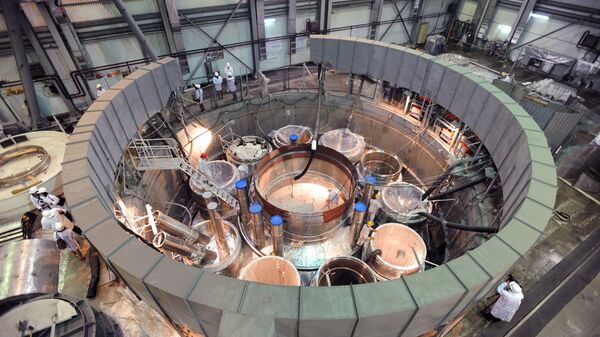The fuel element cans that contain reactor fuel pellets form the first safety barrier that blocks radioactive fission byproducts from invading the reactor heat carrier that circulates through the reactor core. Thus, hermetically sealed fuel element cans are crucial.
According to Prof. Yevgeny Kudryavtsev of MEPhI, who is in charge of the project, the university has developed a series of installations for the non-destructive testing of fuel element cans based on the resonant ultrasonic spectroscopy method suggested by his team.
"The method is based on exciting local circumferential oscillations of the cans (or segments thereof) and recording the parameters – resonance frequencies and figures-of-merit (half-width of a resonance peak). Scanning can reveal spots of corrosion damage on the inside and outside surface of the cans and can identify the type of corrosion and its parameters," he explained.
The team is developing a new installation for highly sensitive multi-frequency eddy current testing based on analyzing interactions between the external electromagnetic field that is excited with a specially designed coil with the electromagnetic field of the eddy currents, as induced in a fuel element can by this field. The method helps to reveal a number of defects such as internal and external cracks, magnetic phase discharges, fuel column ruptures, fuel mass transfers, and local melt areas.
READ MORE: MEPhI to Develop Long-Lasting Battery With Unorthodox Methods
The research results have been confirmed by further tests using the destructive method, metallography, a MEPhI spokesperson said.
"The use of existing methods and installations will make it possible to identify corrosion damage at the primary non-destructive test stage, reduce the number of time-consuming metallographic tests, expand the capabilities of hot-cell experimental equipment and enhance the reliability of the results," a project participant, Ilya Rodko of MEPhI, said.
This research project was funded by the Ministry of Science and Higher Education.



